
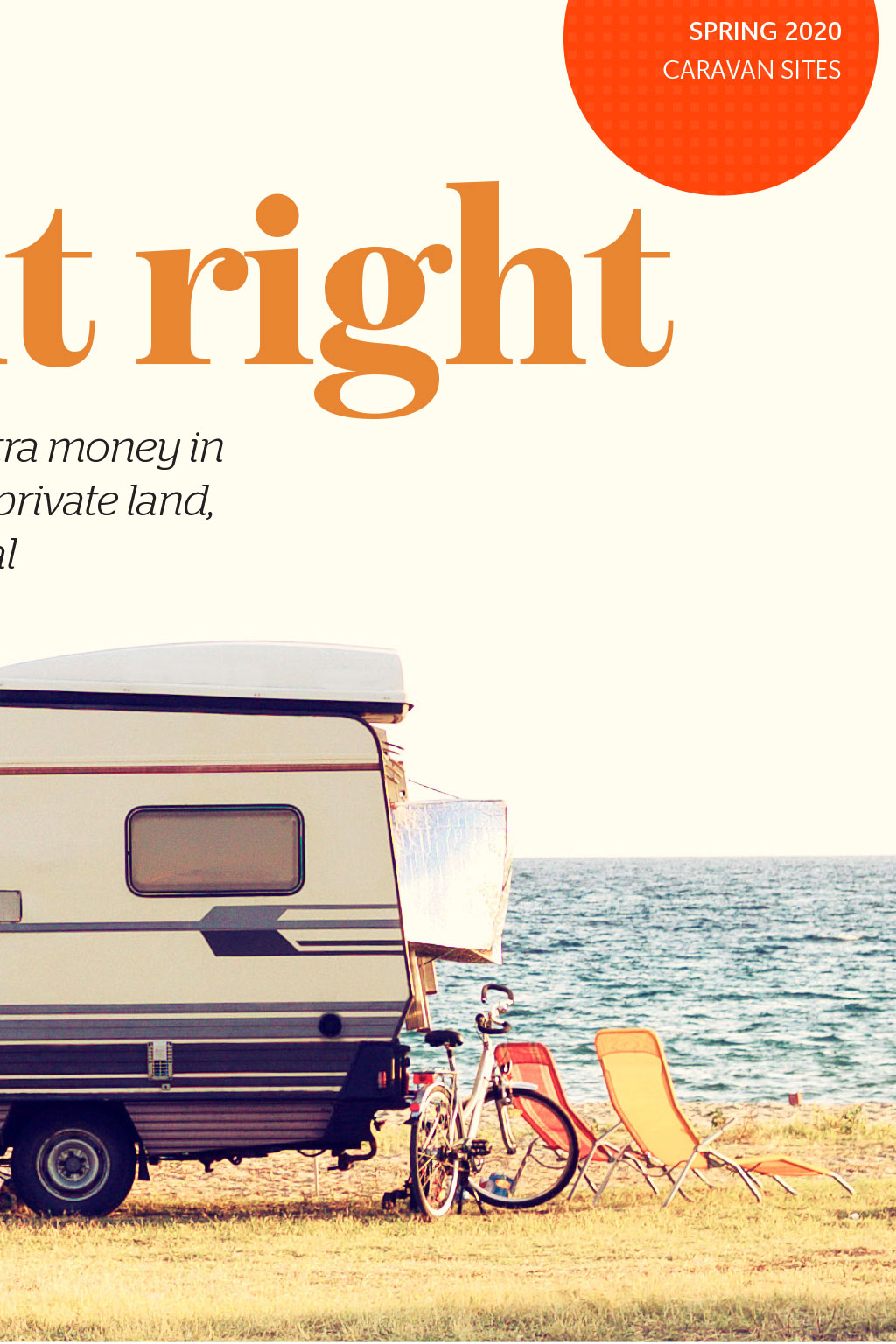

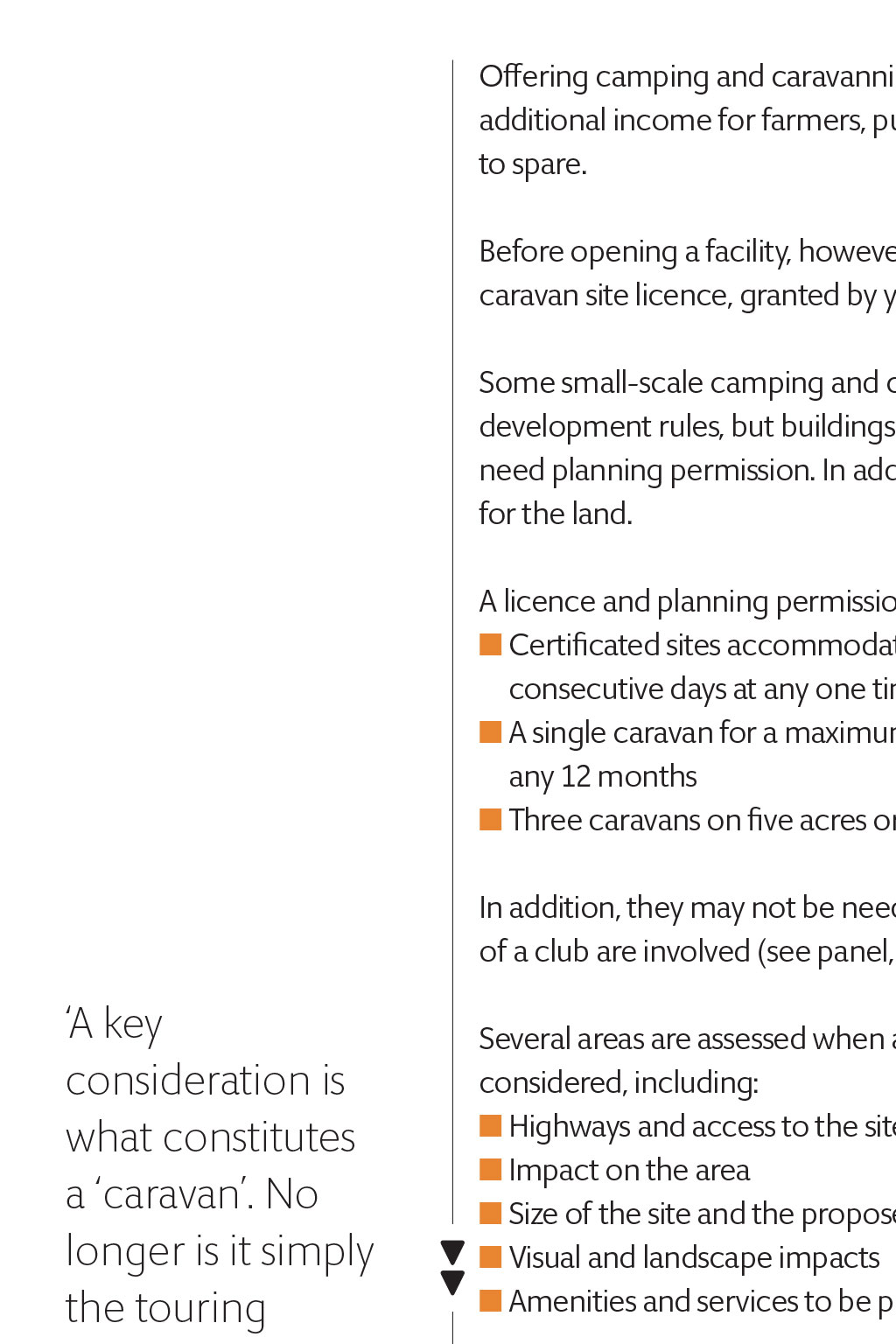
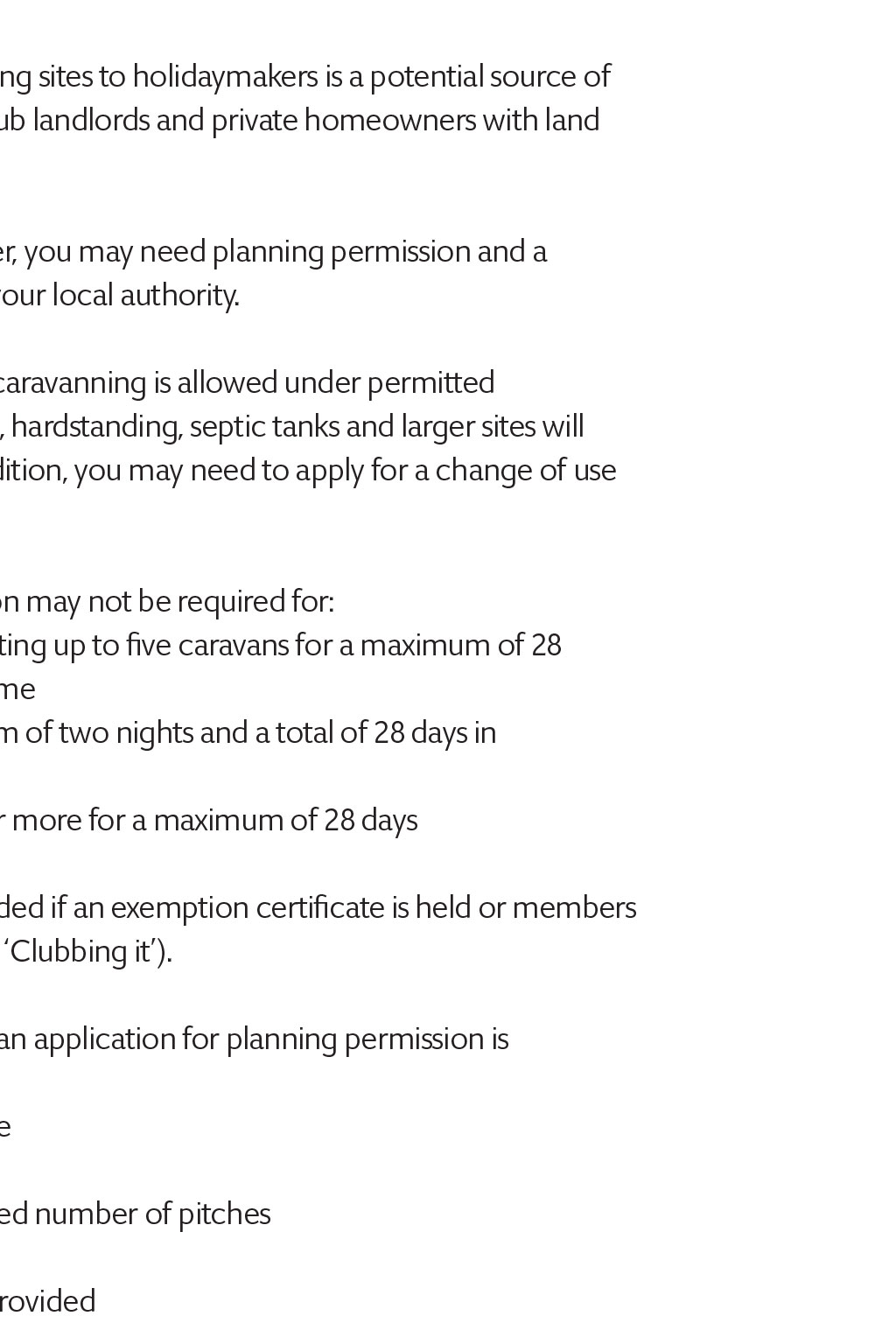
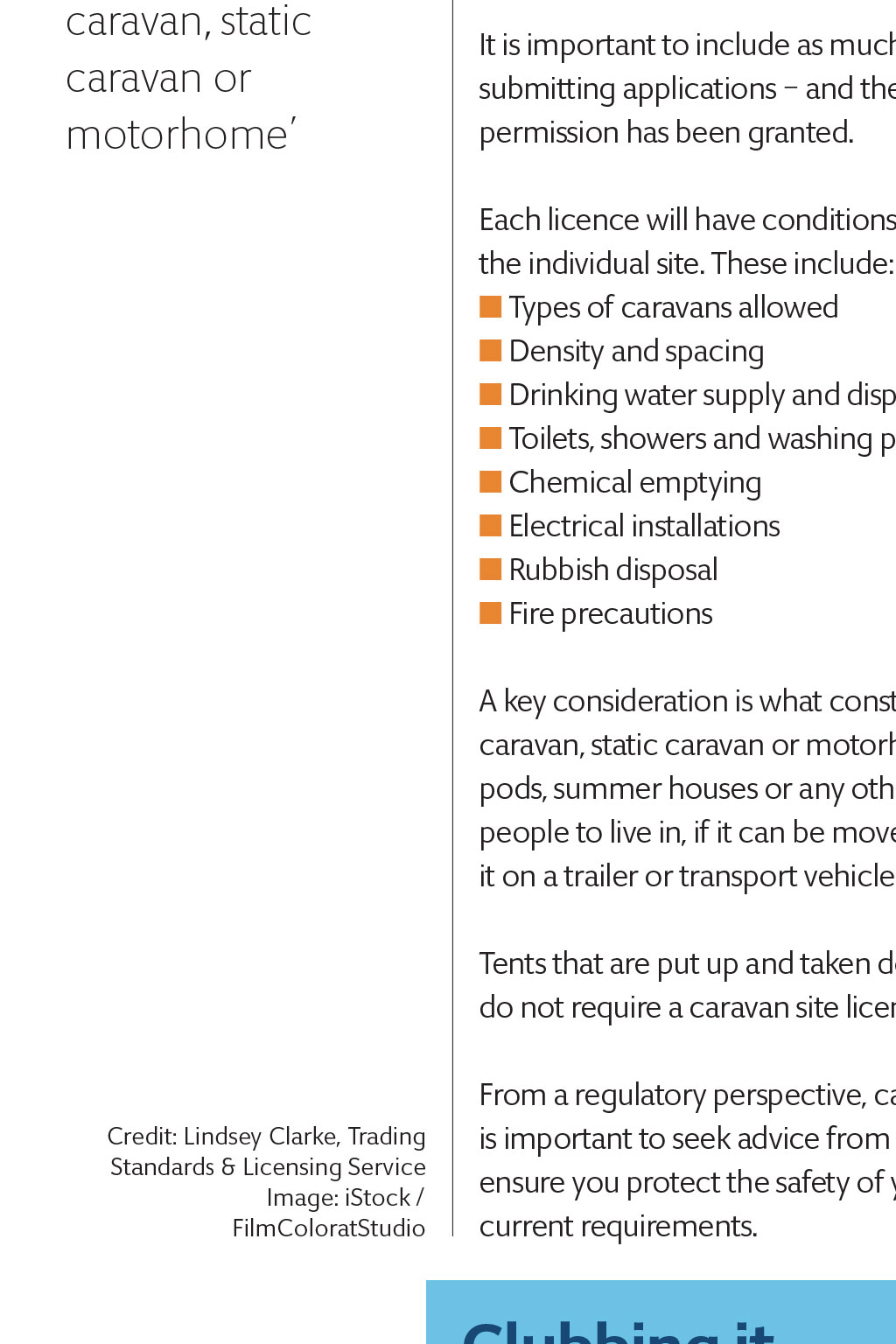
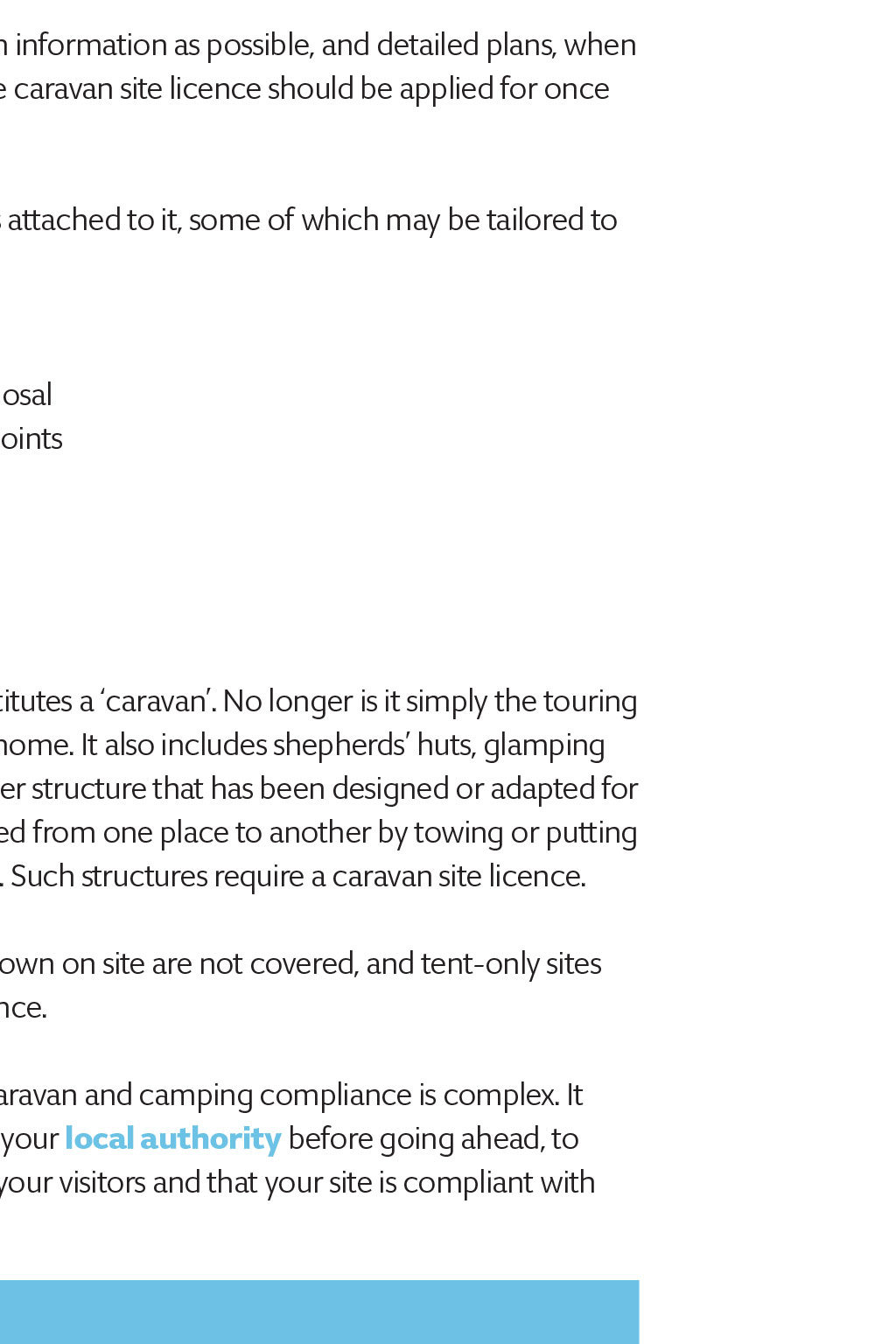
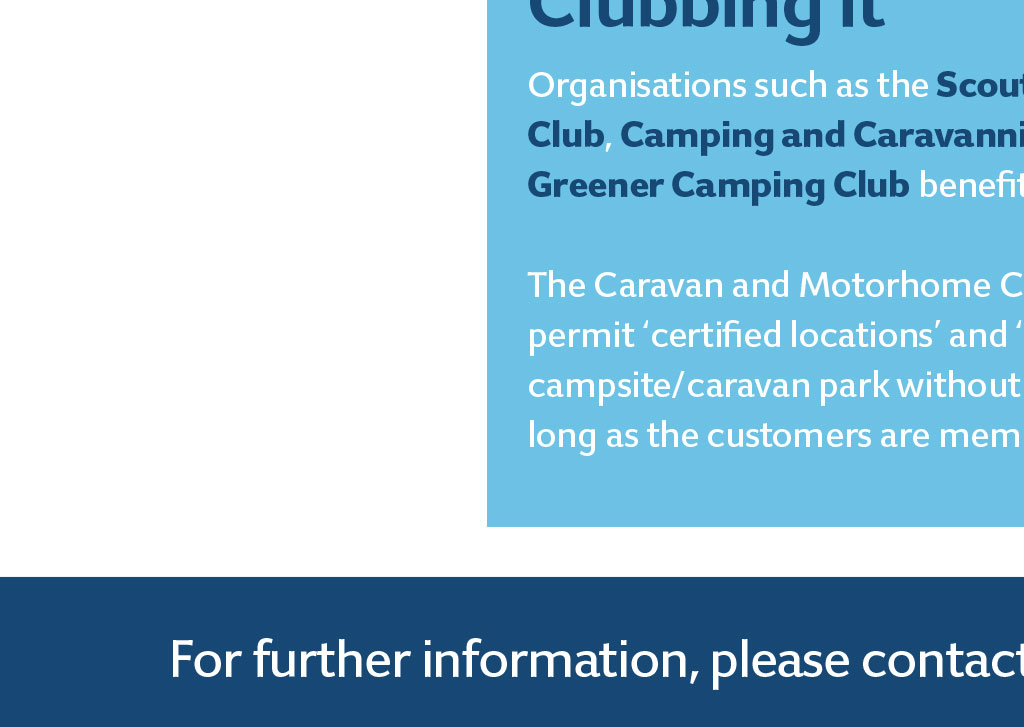
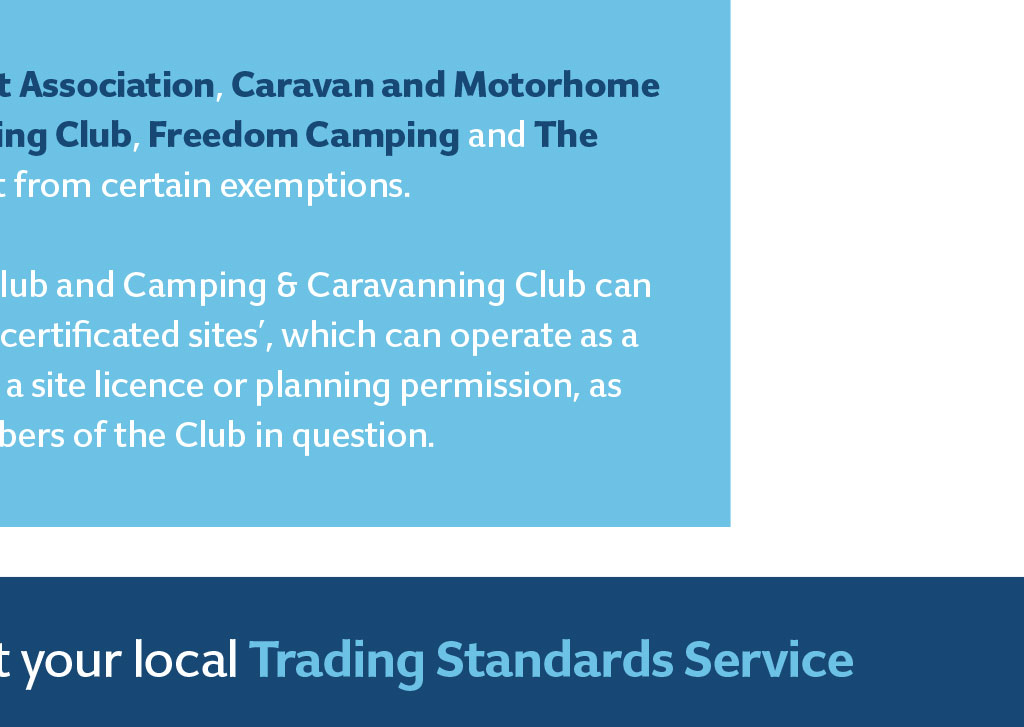










SPRING 2020 CARAVANS Pitch it right It may be tempting to make some extra money in the summer by hosting caravans on private land, but do your homework to keep it legal Offering camping and caravanning sites to holidaymakers is a potential source of additional income for farmers, pub landlords and private homeowners with land to spare. Before opening a facility, however, you may need planning permission and a caravan site licence, granted by your local authority. Some small-scale camping and caravanning is allowed under permitted development rules, but buildings, hardstanding, septic tanks and larger sites will need planning permission. In addition, you may need to apply for a change of use for the land. A licence and planning permission may not be required for: n Certificated sites accommodating up to five caravans for a maximum of 28 consecutive days at any one time n A single caravan for a maximum of two nights and a total of 28 days in any 12 months n Three caravans on five acres or more for a maximum of 28 days In addition, they may not be needed if an exemption certificate is held or members of a club are involved (see panel). A key consideration is what constitutes a caravan. No longer is it simply the touring caravan, static caravan or motorhome Several areas are assessed when an application for planning permission is considered, including: n Highways and access to the site n Impact on the area n Size of the site and the proposed number of pitches n Visual and landscape impacts n Amenities and services to be provided It is important to include as much information as possible, and detailed plans, when submitting applications and the caravan site licence should be applied for once permission has been granted. Each licence will have conditions attached to it, some of which may be tailored to the individual site. These include: n Types of caravans allowed n Density and spacing n Drinking water supply and disposal n Toilets, showers and washing points n Chemical emptying n Electrical installations n Rubbish disposal n Fire precautions A key consideration is what constitutes a caravan. No longer is it simply the touring caravan, static caravan or motorhome. It also includes shepherds huts, glamping pods, summer houses or any other structure that has been designed or adapted for people to live in, if it can be moved from one place to another by towing or putting it on a trailer or transport vehicle. Such structures require a caravan site licence. Tents that are put up and taken down on site are not covered, and tent-only sites do not require a caravan site licence. Credit: Lindsey Clarke, Trading Standards & Licensing Service Image: iStock / FilmColoratStudio From a regulatory perspective, caravan and camping compliance is complex. It is important to seek advice from your local authority before going ahead, to ensure you protect the safety of your visitors and that your site is compliant with current requirements. Clubbing it Organisations such as the Scout Association, Caravan and Motorhome Club, Camping and Caravanning Club, Freedom Camping and The Greener Camping Club benefit from certain exemptions. The Caravan and Motorhome Club and Camping & Caravanning Club can permit certified locations and certificated sites, which can operate as a campsite/caravan park without a site licence or planning permission, as long as the customers are members of the Club in question. For further information, please contact your local Trading Standards Service